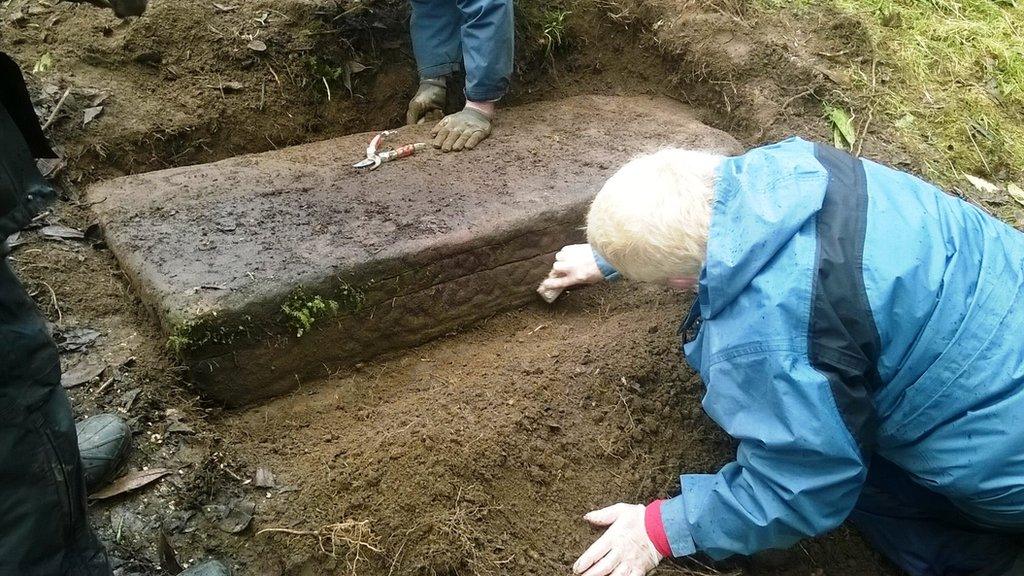Rare Pictish stone goes on Covid-safe display
- Published
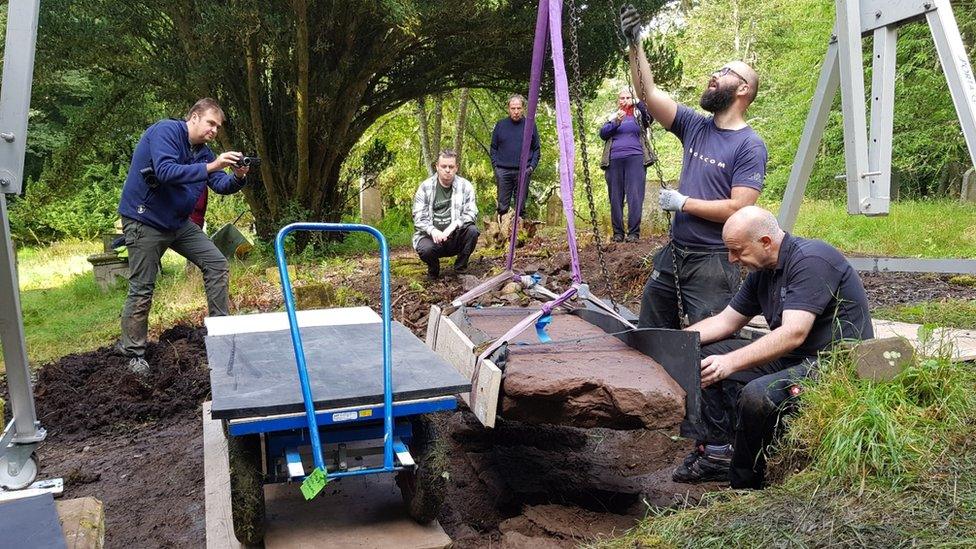
The stone being removed last year for analysis and conservation work
A rare Pictish standing stone is to go on display in the window of a Highlands museum that is temporarily closed due to the Covid-19 pandemic.
The 1,200-year-old carved stone was discovered hidden under vegetation at an early Christian church site near Conon Bridge last year.
It is to go on display at a museum in nearby Dingwall next week.
The stone will be positioned so that it can be seen by passers-by through a window facing the High Street.
Archaeologists described its discovery last year being of national importance because it is one of only about 50 complete Pictish cross-slabs - intricately carved stones - known to exist.
The stone has a large ornate Christian cross and is also decorated with oxen, an animal-headed warrior and mythical beasts.
It has markings showing it was used as a grave marker in the 1790s.
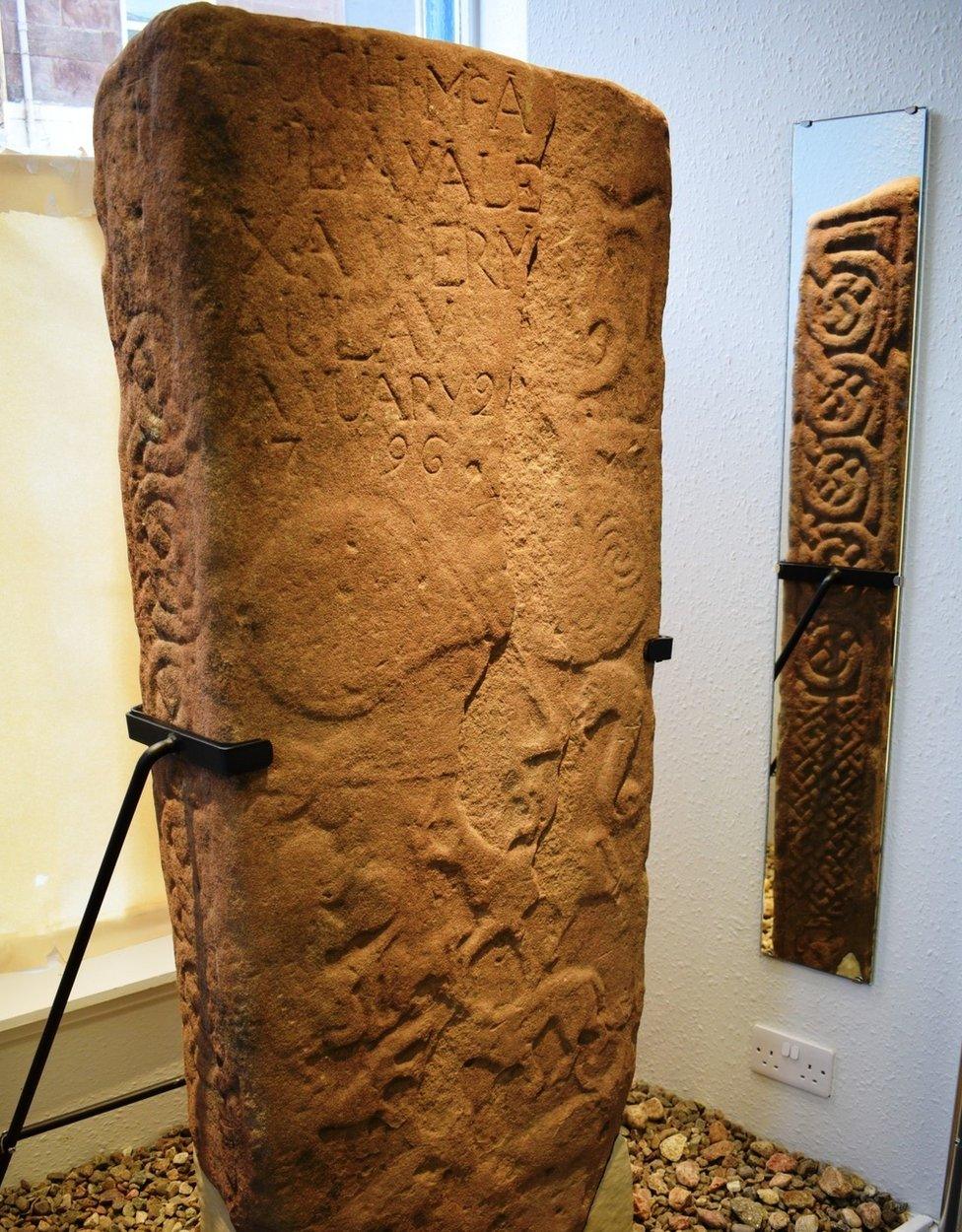
The stone is one of only about 50 complete Pictish cross-slabs

Archaeologists believe the stone would have originally measured more than two metres (6ft) tall. Just over a metre of it survives.
Anne MacInnes of North of Scotland Archaeological Society found the stone lying on the ground under vegetation last August.
Highland Council archaeologist Kirsty Cameron said at the time it was a "once-in-a-lifetime find".
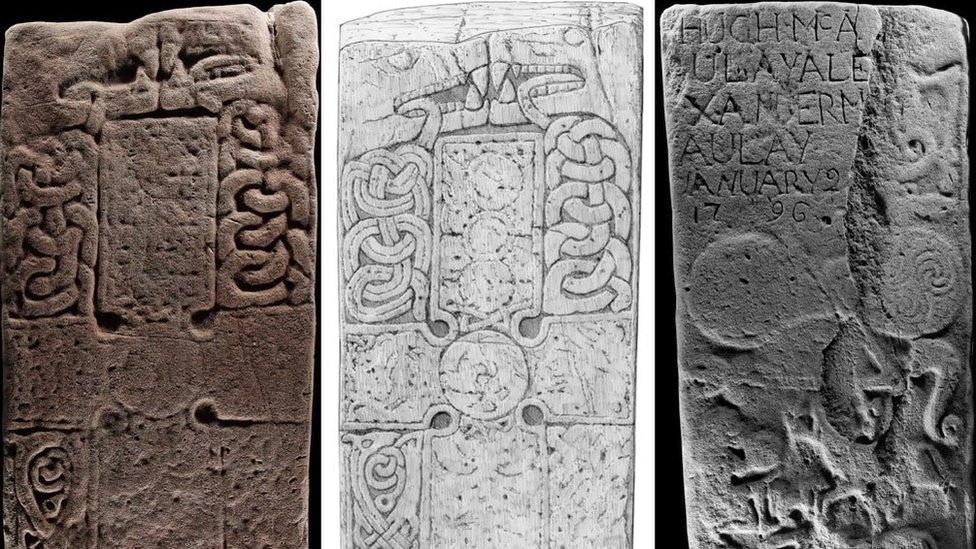
The stone is decorated with Pictish carvings and markings from when it was later used as a grave marker
Ian MacLeod, chairman of Dingwall Museum said: "This special stone will enhance our collection and it will be safeguarded for future generations to see.
"I have been very impressed with everyone who has worked along with the museum team, and special mention must go to the local specialists and tradesmen who gave their time and expertise to complete the installation."
The museum is expected to reopen next year.


Related topics
- Published14 October 2019
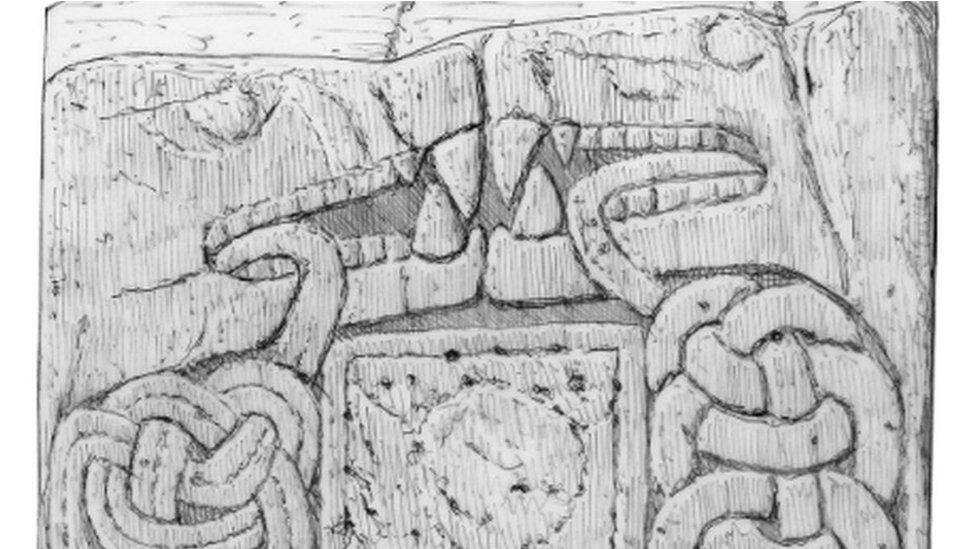
- Published23 August 2019
